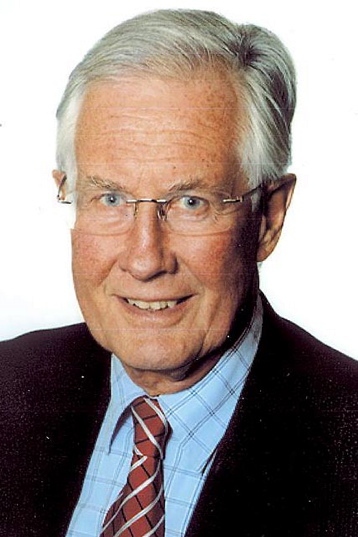Bitter scourge of poverty stalks the land
Date published: 18 October 2013

Michael Meacher: economic policies are making things worse
OLDHAM West and Royton MP Michael Meacher warns of the return of “absolute poverty”, the consequence of Government spending cuts, benefit changes and low pay that have seen even those in work struggle to get by.
Something terrible is slowly happening across the face of Britain - and more so in Oldham, one of its poorest towns.
We are seeing the return of absolute levels of poverty that haven’t existed on this scale since the Victorian age over a century ago.
Relative poverty is when people can’t afford the comforts most people have; absolute poverty is when people haven’t the money to pay for even their most basic needs.
The evidence is all around us:
There are now more than 300 foodbanks in Britain, and the number is rising every week.
The Red Cross is setting up centres to help the destitute - as they do in developing countries.
A new study shows that even in prosperous areas of the country like London, more than a quarter of the population now live in poverty.
A new, scary fact is steadily emerging: an increasing number of poverty households are not dependent on benefits, but where someone is in work.
In the North, the first survey published by the Northern Housing Consortium presents a devastating picture. It is based on 74 households, a small sample but one which broadly reflects all households living in the social-rented sector.
It reveals that two-thirds, after paying for rent and food and other essential bills, end up each week with less than £10 left. More than a third have nothing left at all. A quarter can afford only £20 or less on food — how many of the rest of us could survive on that?
Four-fifths are in debt averaging nearly £2,500.
Some of the responses are heartrending, such as this one: “Hate the system. I have worked all my life and because work is so hard to find, I have been taking anything. I had a phone call one night and was offered three days work starting the next day.
“I did it, then went to the jobcentre to tell them I had earned three days’ money. They fined me for not telling them sooner, but I couldn’t as I’d had to start at 7.30am the next morning.
“Then I put a new claim in, then got another few days work. This has been on and off for months. I hate not working and will take what I can, but now this has messed all my benefits up and I’m getting fined.
“They stop my money and I have to sell things to pay bedroom tax and council tax. I am going to have nothing left at this rate. How can this be right when all I am trying to do is find a job?”
Nor are the so-called benefit reforms helping.
Oldham is ranked 26th hardest-hit out of 379 local authorities in Britain, with the town taking a hit as a result of the welfare cutbacks amounting to a £90 million loss. That is equal to a £637 cut on every average working-age adult in Oldham.
The iniquitous bedroom tax - Oldham is the fourth-worst-affected town in the country — hits 5,500 households, yet there are only a tenth of that number of one-bedroom housing units available.
Over 2,000 claimants have now received summonses for council tax arrears.
Community care grants and crisis loans for living expenses were ended in March, but the alternative local welfare provision offered was so meagre that in the first two months 1,300 items of the 1,600 claimed were refused.
The benefit cap is hitting 170 households in Oldham, all with children. What makes this so gratuitously cruel for the victims is that it isn’t even necessary.
The driver behind all this is the Government’s declared goal of reducing the budget deficit blown up by the bankers’ crash in 2008.
The goal is right, but the method being used is utterly wrong.
Endlessly cutting public expenditure leads to falling incomes, business bankruptcies and lowered investment, which results in reduced tax receipts for the Government and the budget deficit therefore actually growing.
The right way to cut the deficit is by public investment to stimulate the economy, cut the dole queues (which now cost £18 billion a year), and kickstart growth to turn the economy around - which the present, fragile, so-called “recovery” is certainly not doing.
Then, and only then, will the bitter scourge of absolute poverty be removed from our land.
Most Viewed News Stories
- 1You can score free tickets to a Latics game while supporting Dr Kershaw’s Hospice
- 2Tributes paid following death of hugely respected Oldham community figure Dale Harris
- 3Primary school in Uppermill considers introducing new ‘faith-based’ entry criteria to tackle...
- 4Public inquiry announced into rail upgrade that could leave villages ‘cut off’ for months
- 5Trio arrested, drugs and weapons seized following Chadderton raid




